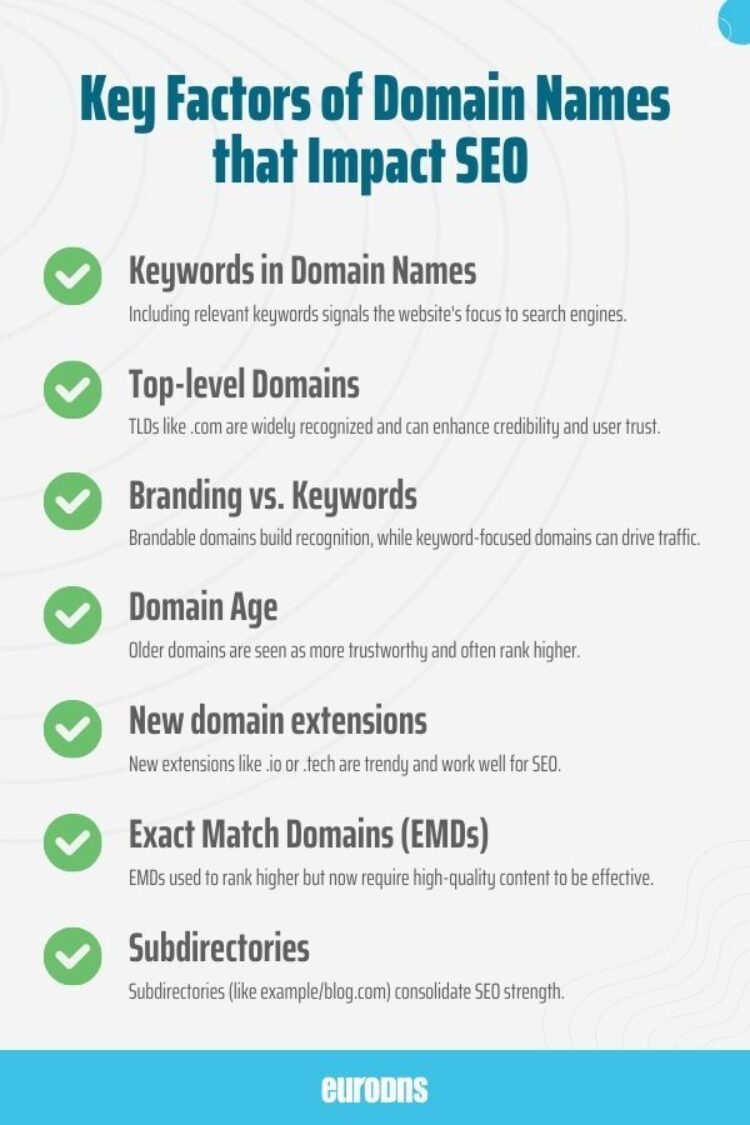Is Domain Name Important for SEO?
One of the most common questions asked by website owners and SEO professionals is whether the domain name of a website has an impact on its search engine optimization (SEO) performance. While the debate on this topic has been ongoing for years, there is consensus among experts that domain names do play a role in SEO.
Before delving into the importance of domain names for SEO, it is essential to understand what SEO is and how it works. SEO stands for search engine optimization, which refers to the process of improving a website’s visibility on search engines like Google, Bing, and Yahoo. The goal of SEO is to enhance a website’s organic (non-paid) traffic and improve its search engine rankings.
When it comes to domain names, they are an essential part of a website’s online identity. A domain name is the web address that users type into their browsers to access a website. For example, in the domain name “www.example.com,” “example.com” is the domain name.
Now, let’s explore how domain names can impact SEO performance:
1. Branding and Credibility
A domain name plays a crucial role in building a brand’s online presence and credibility. A unique and memorable domain name can help users easily remember and identify a website. Additionally, a relevant domain name that matches a website’s content can convey trust and authority to users and search engines.
For example, if a website sells organic skincare products, a domain name like “www.pureorganicskincare.com” clearly communicates the website’s focus and expertise in this niche. This alignment between the domain name and website content can enhance the website’s credibility and user trust.
2. Keywords in Domain NamesAnother way domain names can impact SEO is through the inclusion of relevant keywords. Keywords are terms or phrases that users type into search engines to find information related to their query. Including relevant keywords in a domain name can help improve a website’s search engine rankings for those keywords.
For instance, if a website focuses on fitness tips and workouts, a domain name like “www.fitnessguide.com” or “www.workoutexpert.com” may contain keywords related to the website’s content. When users search for terms like “fitness guide” or “workout expert,” websites with these keywords in their domain names may rank higher in search results.
3. Domain Age and Authority
Domain age and authority are important factors that influence a website’s SEO performance. Domain age refers to the length of time a domain has been registered and active on the internet. Older domains with a history of consistent content and backlinks may have higher authority in the eyes of search engines.
When choosing a domain name for SEO, consider opting for a domain that has been established for a longer period. Older domains may have accumulated more backlinks, social signals, and content, which can contribute to their authority and ranking potential.
4. Domain Extension
The domain extension, also known as the top-level domain (TLD), can also impact SEO performance. Common domain extensions like .com, .org, and .net are believed to be more trustworthy and reliable by users and search engines. However, new domain extensions like .io, .app, and .tech have gained popularity in recent years.
When selecting a domain extension for SEO, opt for a domain that aligns with your website’s purpose and target audience. While .com domains are still the most widely recognized and used, other domain extensions can be suitable depending on the nature of your website.
Conclusion
In conclusion, domain names play a crucial role in a website’s SEO performance. From branding and credibility to keywords and domain age, several factors can impact how a domain name influences a website’s search engine rankings.
When choosing a domain name for SEO, consider selecting a unique, relevant, and memorable domain that aligns with your website’s content and target audience. By optimizing your domain name for SEO, you can improve your website’s visibility, credibility, and authority in the competitive online landscape.
